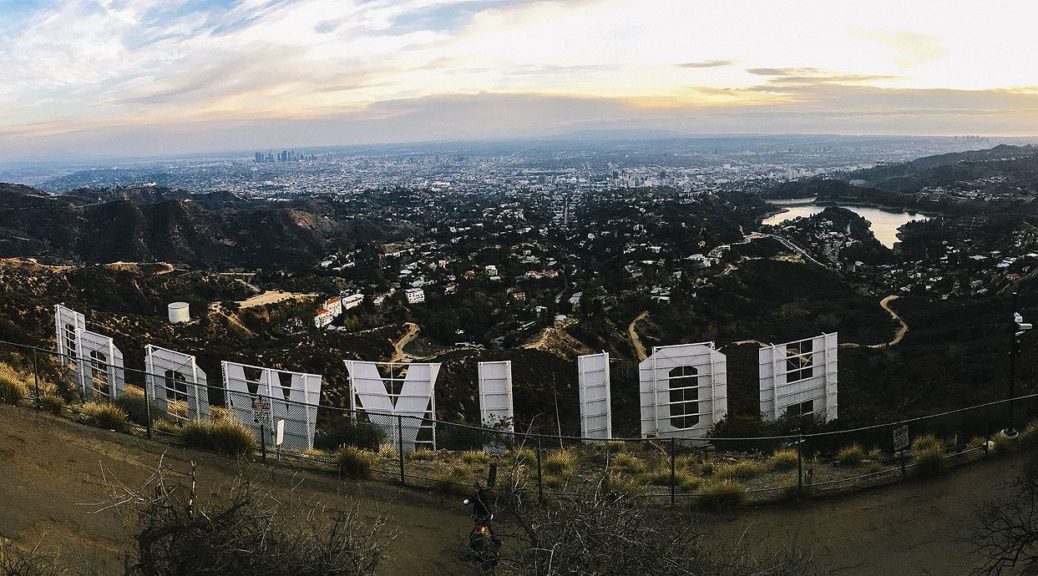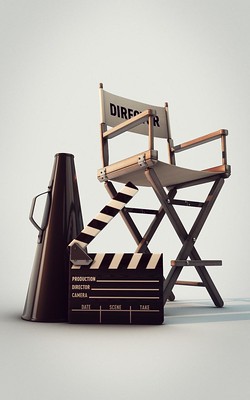By Kevin Jiang
Living in Los Angeles, you are bound to see a celebrity or two walking around. I mean, Hollywood is the heart of the film industry and you can’t walk a block without seeing some sort of filming activity. Consequently, this summer I came upon an interesting opportunity to be a background actor.
To quickly explain, background actors , or “extras”, are all those silent people in TV shows or movies that walk around in the background, cheer in a crowd, fill a party, or sit in a café. Whether you notice them or not, these “extras” are an important part of filmmaking. They make the action on screen believable.
I only got into the background business a couple weeks ago, but I’ve already worked on multiple sets, from the long-running television staple NCIS, to tween programming on Nick and Disney, to a small unannounced feature film. The experience, besides teaching me EXTREME patience due to sitting and waiting for hours upon hours until needed on set, has also given me an appreciation for all the work and coordination that goes on behind the scenes of a TV show or film. I mean, you’ve all seen the credits that roll after a show or movie has ended and you’ve probably wondered, “Who are these people?” Being there on set and witnessing the intricate network of communication and the complicated set-ups for lights, sound, and camera, I fully comprehended the importance of each individual and their role in the crew.
To film a single scene, you’ve got your actors, of course, whose job it is to come prepared, but then there’s also the hair and make-up artists who must execute the vision of each character’s aesthetic, and the lighting and sound crews who are in charge of creating the perfect atmosphere and ensuring the sound quality, and the camera crew who needs to get the exact angle and camera movement. And, last but not least, you have the background actors who must get into place and know exactly what to do when the camera starts rolling. All together, it feels like organized chaos, like when musicians in an orchestra all tune their instruments at the same time. Of course, however dissonant the sound is while they prepare, the cacophony is immediately forgotten once the conductor raises his wand and leads the ensemble in melodic harmony.
The conductor in this metaphor would be the director, who, in a release of artistic potential, calls “Action” and sets the magic of movies in motion. Of course, one “take”, or attempt at filming a particular scene, is quite rare. After filming each scene, small adjustments are made in lighting, actor intonation, or camera angles to achieve the director’s vision of perfection. The process can be tedious, but the final outcome is always worth it.
I’ve always been an avid Netflix binger (I’m sure it leans quite closely to obsession) but now, I watch shows differently. I notice the small details that often go overlooked, a shame because it is these subtleties that really lend depth to a masterpiece. Experiencing the process of filmmaking firsthand has given me a once latent, but now fully realized, appreciation of the art form known as cinema.
Featured image from Wikimedia Commons
Kevin is a sophomore studying Neuroscience, and is considering picking up a Computer Science minor. He is a born and raised San Diegan and loves the Southern Californian weather and atmosphere. As a swimmer and water polo player, as well as a frequent beach goer, he enjoys being near water. Kevin also enjoys modern art, cooking, but most importantly eating GOOD FOOD (Which LA has a ton of)! Like most people, Kevin enjoys traveling and experiencing the history and culture of other nations.


